Ilsur Khadiullin: ‘We are interested in children learning Russian in schools’
The minister of education and science of Tatarstan tells how it is planned to solve the problems of educating migrant children and the shortage of teachers.
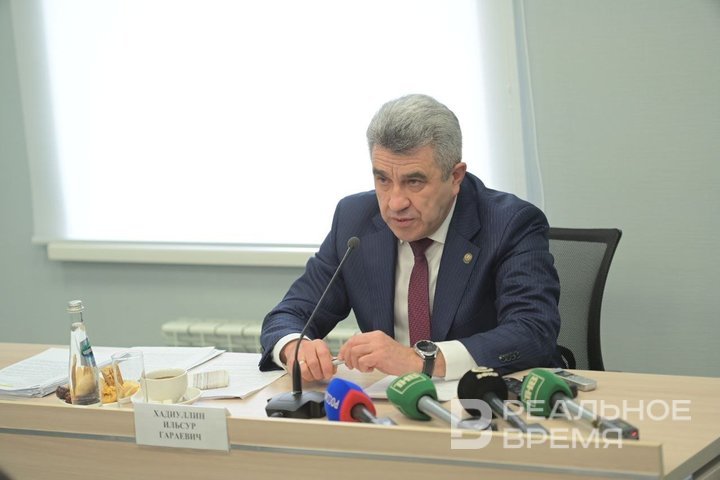
Minister of Education and Science of the Republic Ilsur Khadiullin plans to teach migrant children the Russian language with the help of school teachers and students from pedagogical universities. He hopes that the experience of creating a network of educational institutions in Tatarstan with instruction in native languages will be taken into account during the development of the State Language Policy Framework for all of Russia. He shared this information while answering questions from Realnoe Vremya at the traditional meeting with media representatives dedicated to summarising the results of the journalism competition Class Work (Klassnaya Rabota). Read the details in the material of the publication.
If you don't know, we'll teach you
The sensitive issue of educating migrant children who do not speak Russian in Russian schools ranked second in the number of questions journalists directed at Ilsur Khadiullin, second only to the long-standing problem of a shortage of schools and kindergartens. At the end of 2024, educational institutions finally got the legal right to refuse children who failed the Russian language proficiency test. However, the minister, responding to questions from Realnoe Vremya, stressed:
“We are not interested in those children who will not be able to pass the test. We want everyone to pass it. No child will be denied because they will be prepared in advance. We are interested in children, whether migrants or non-migrants, studying in our schools, but speaking Russian.
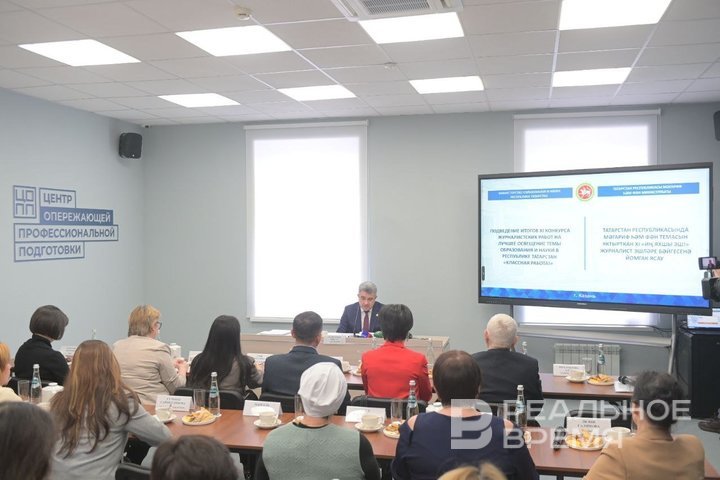
To this end, the ministry of education and science plans to prepare such children for learning in Russian — to teach them in special courses starting on April 1, 2025, when admission to schools begins, and up to its end on September 5. According to Ilsur Khadiullin, school teachers, additional education teachers, and students of the pedagogical faculty will teach Russian.
In the current academic year, he said, schools are conducting adaptation courses for foreign parents and holding parent meetings to explain the basics of Russia's migration and labour legislation using materials recommended by the Federal Agency for Ethnic Affairs.
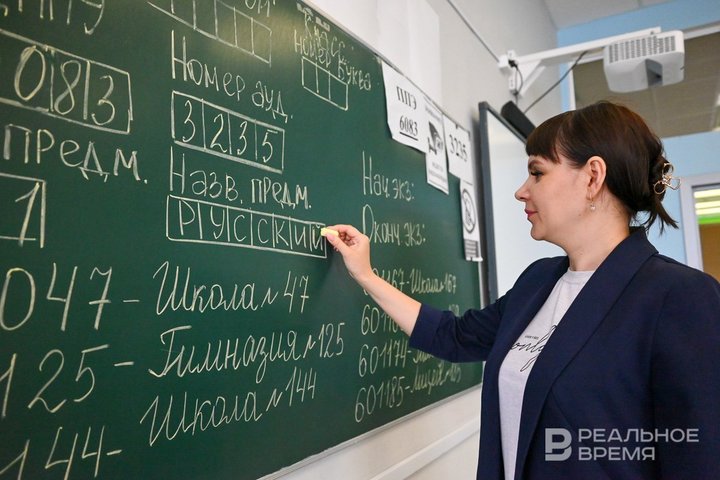
Realnoe Vremya inquired about the funding sources for this initiative, its future plans, and whether additional financing is needed to ensure it does not become an extra unpaid burden for teachers.
“Currently, all work is carried out within the framework of the main activity," the minister said. “By April 1, we will receive the mechanisms where all the questions should be answered.
Today, according to the Ministry of Education and Science, 3,178 migrants study in Tatarstan schools, most of them in educational institutions in Kazan and Naberezhnye Chelny. In addition, more than 300 such children attend kindergartens, and more than 500 study in secondary vocational educational institutions. Ilsur Khadiullin assured that at least 85% of them speak Russian well, therefore, in his opinion, the burden of teaching a few non-speakers will be small.
“The right to study in one's native language must be taken into account”
By June 1, 2025, a draft of the Fundamentals of State Language Policy is to be developed in Russia, the implementation of which will largely be carried out by educational institutions. Realnoe Vremya asked Ilsur Khadiullin what aspects, in his opinion, should be taken into account in this document, what positive and what negative Tatarstan's experience in this area should definitely be used.
“The development of the draft Fundamentals of State Language Policy is the first item on the list of instructions issued by Vladimir Putin following the meeting of the Council under the President of Russia on the implementation of state policy to support the Russian language and the languages of the peoples of the Russian Federation on December 30, 2024," the minister reminded. “In our view, this document must necessarily include: the right of Russian citizens to be educated in their native language, the opportunity to study native languages at all levels of education, the creation of conditions for preserving and developing national cultures and traditions of the peoples of Russia, the development of science in native languages, and the use of the state languages of the republics of Russia in all spheres of life.”
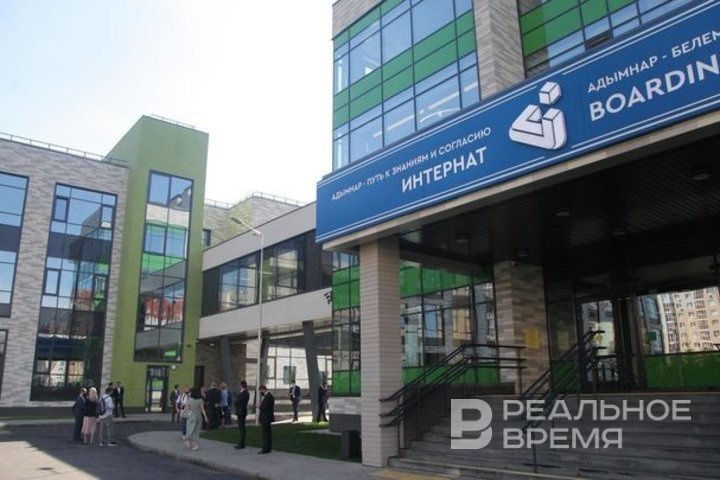
Ilsur Khadiullin believes that a positive example of the state language policy can be the network of educational organisations established in Tatarstan with instruction in their native language, provided with educational and methodological literature in their native language and for learning their native language. According to him, other Russian regions are showing great interest in this experience:
“We receive delegations from many republics and regions of our country, share our experience. On our platform, we have hosted the Forum of Ministers, the All-Russian Competition for the 'Best Teacher of Native Language and Literature,' the Interregional Conference on 'Developing State Textbooks on Regional History,' and other events.
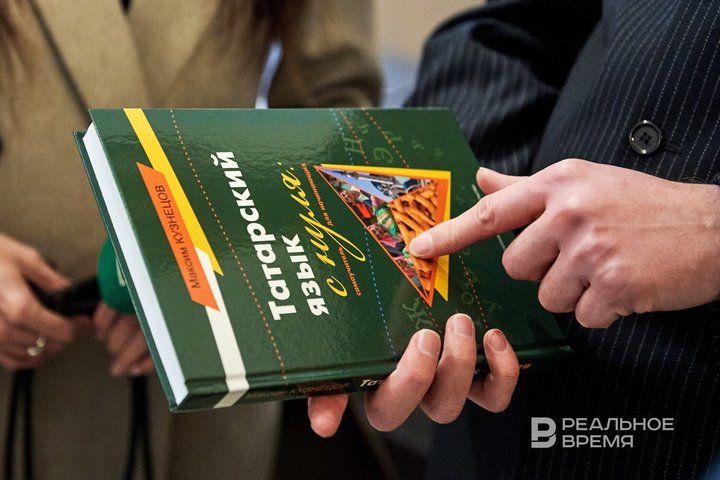
The minister also told reporters that the federal list of textbooks has already included 86 teaching kits on the Tatar language and literature, and in August 2024, 26 new-generation textbooks were sent from Tatarstan to the Ministry of Education of the Russian Federation.
There are not enough teachers, but workaholics have a lot of money.
The third topic, which was discussed in detail at the meeting with the minister of education and science, was the shortage of teaching staff and teacher salaries. According to the ministry of education and science, the republic lacks more than 2,000 teachers and more than 1,000 kindergarten teachers.
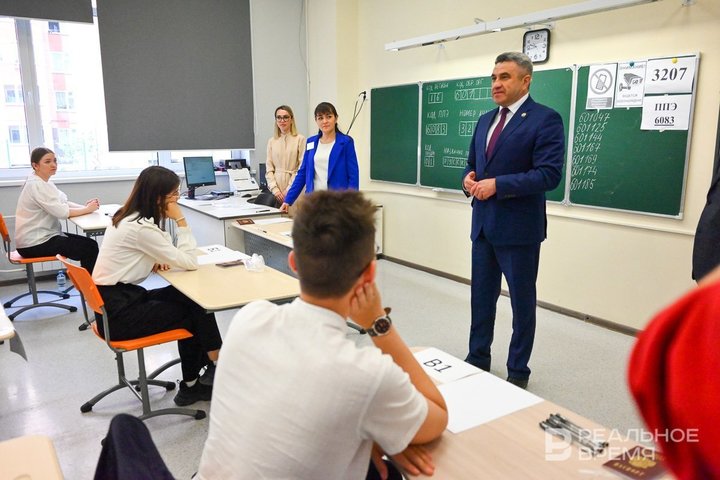
Currently, the republic's education system employs more than 76,000 teaching staff, including more than 32,000 school teachers, while the average age of school teachers is 48 years, the proportion of young teachers (under the age of 35) is only 21.1%, and the proportion of retired teachers is 22.3%.
Ilsur Khadiullin agreed that the burden on teachers has increased in recent years, but there have been no more people willing to work in schools. Moreover, even those who come to work at the school often do not stay there. Even targeted students are unwilling to fulfill their mandatory service time after graduating from university — they try to switch to regular budget-funded programmes at the first opportunity, where there are no 'obligations' after receiving their diploma.
Those who, having received 'bonuses' through various programs, are required to work at a school for 5 years demonstrate high 'retention' in their jobs:
“Their retention rate is almost 90%. Interestingly, the retention rate of graduates of teacher training colleges is 85%. So, it turns out that real future teachers are growing up in teacher training colleges!”
The journalists recalled that if teachers earn more or less decent money by increasing their academic workload, then kindergarten teachers are offered to work for 25-35 thousand rubles per month. However, according to the minister, the average salary of kindergarten workers has reached 52 thousand rubles.
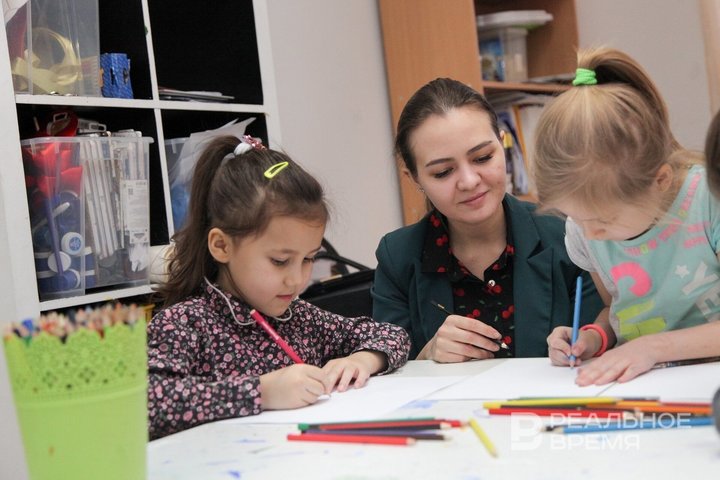
“Probably, if you write, everyone will be surprised," Ilsur Khadiullin remarked, speaking about the earnings of education workers. “But this is not for one rate — for one and a half or two rates, the average salary, taking into account payments under the May decrees of the president of the Russian Federation, payments for classroom guidance, grant support, and so on…
That is, it turns out that the problem of school teachers and kindergarten teachers is not in low wages per se, but in the absence of decent pay when working for one rate — that is, in the only case when the teacher does not work 24/7, but also manages to live his own life — to raise children, have fun, and get enough sleep.